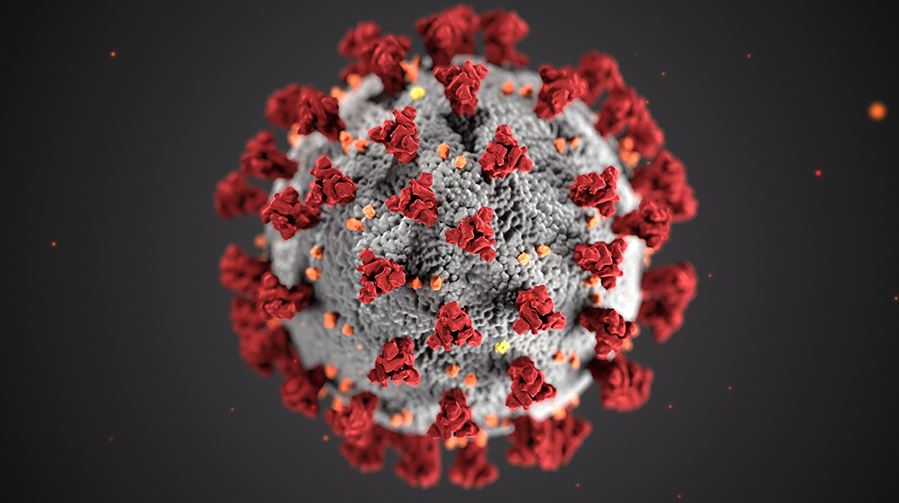Don’t hold your breath. Experts debunk dangerous myths about the coronavirus
May 01, 2020 @ 11:39 +03:00
Believing and acting on false information can be gravely dangerous. After U.S. President Donald Trump suggested that consuming or injecting disinfectants could help fight Covid-19, health experts fired back swiftly and warned that such unsound medical advice “could seriously harm people.” Trump later tried to walk back on those comments. Experts who spoke to CNBC debunked the following myths about the coronavirus that are spreading.
No, exposing yourself to the sun — or to temperatures above 25 degrees Celsius (77 degrees Fahrenheit) will not stop you from contracting the disease, according to the World Health Organization. The virus can be transmitted anywhere, even countries with hot and humid weather, WHO said. Much of Southeast Asia has a tropical climate. But the region has not been spared from a surge in coronavirus cases — Singapore has more than 16,000 cases while Indonesia has nearly 10,000 reported infections, according to Johns Hopkins University data.
In the Saudi Arabia, where the desert sun can get hotter than 50°C (122°F) at the peak of summer, more than 21,000 cases have been reported, according to Hopkins. 90°C of heat for 15 minutes will effectively destroy the virus, but no human can survive the intensity of that level of heat either. Conversely, “there is no reason to believe that cold weather can kill the new coronavirus or other diseases. The normal human body temperature remains around 36.5°C to 37°C, regardless of the external temperature or weather,” said the WHO.
Trump had also speculated that exposing people to “ultraviolet or just very powerful light” could help kill the coronavirus, but experts warned about its dangers.
While the virus is susceptible to ultraviolet (UV) light which can make it harder for the virus to reproduce, you can’t possibly get UV light inside your body, as it will be blocked by your skin, explained Paul Offit, director of the Vaccine Education Center, during a video interview with CNBC. All that UV light will do is to increase the risk of skin cancer, Offit said.
Can I drink vodka or whiskey to wash out the coronavirus? Just last month, hundreds of people in Iran reportedly died after ingesting methanol — a false remedy for Covid-19 that was spreading through social media. The number of deaths as a result of ingesting methanol has since risen to 700, according to a recent report by the Associated Press.
While alcoholic beverages, including vodka, could make you “a little drunk,” they are not useful for treating the virus or for preventing the virus infection, William Schaffner, Vanderbilt University professor of medicine in the division of infectious diseases, told CNBC. He added that alcoholic beverages would be of no effect on the coronavirus, or any other virus. “It doesn’t make any sense to try to wash out the virus at all, or even to rinse out the mouth with … an alcoholic beverage.”
Does it mean I don’t have the virus if I can hold my breath for 10 seconds without discomfort or coughing?
Another dangerous claim that’s spreading on social media is a so-called self-check test which falsely claims that people who are able to hold their breaths for 10 seconds, without coughing or discomfort, do not have the virus infection. The false claims have been spreading on Facebook and Twitter.
Dr. Faheem Younus, chief of infectious diseases at the University of Maryland Upper Chesapeake Health, debunked that myth. “Most young patients with Coronavirus will be able to hold their breaths for much longer than 10 seconds. And many elderly without the virus won’t be able to do it,” he tweeted.
The World Health Organization pointed out, “The best way to confirm if you have the virus producing COVID-19 disease is with a laboratory test. You cannot confirm it with this breathing exercise, which can even be dangerous.”
Was the virus caused by 5G networks? Cell towers in the U.K. were torched earlier this month, after conspiracy theories flooded Facebook claiming the coronavirus outbreak was caused by 5G, the next generation of mobile internet. Viruses cannot travel via radio waves or mobile networks, the WHO said.
Don’t hold your breath. Experts debunk dangerous myths about the coronavirus, CNBC, May 1







